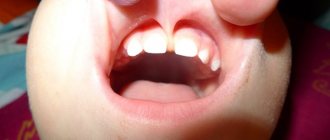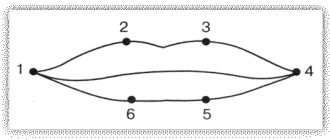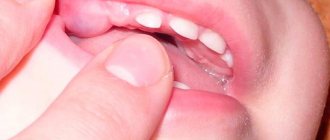29.01.2020 24072 0
- When to introduce the first complementary foods
- How to tell if your baby is ready for solid food
- Diet for young children
- Common mistakes in complementary feeding
- Prohibited products
- What to do if your child cannot eat solids
- Gameplay for eating
When a small child appears in a family, parents are faced with a difficult task: not only to raise and educate, but also to instill in the child all the necessary skills. For example, young parents are often concerned about how to teach their child to chew. We have collected advice for you from famous Russian and foreign pediatricians that will help you find the optimal solution.
What are the difficulties?
For adults, the process of chewing food seems completely natural. But the child only has a sucking reflex, and even liquid puree becomes unusual and unfamiliar food for him. In addition, the same period is characterized by other reflex reactions, due to which solid pieces of food that enter the mouth are rejected. They weaken by 4 months, but there is no need to wean the baby from the breast at this age: mother’s milk “adjusts” to the baby’s needs, its composition changes over time.
The baby screams, makes trouble, offends others
If the baby regularly makes scandals, this may indicate that the baby is hiding some serious problem. A little person in constant stress must throw out negative emotions, and he does this in the best way he knows how: he throws toys, hits and bites his mother, takes away the car from the neighbor boy. This behavior is often typical for children raised by one parent or grandparents.
The most amazing thing is that aggressive children can hear encouraging words from adults: “You are my best child,” “I adore you,” “You are my only hope in life.” The baby feels a serious burden of responsibility, because his parents consider him ideal, so he needs to live up to it. The nervous tension that grows inside every day does not give the child peace, and he has to use aggression to free himself from negative emotions.
How to tell if your baby is ready for solid food
As a rule, the baby himself makes it clear that he is interested in updating his diet. This can be seen from his behavior:
- Stops sucking food from a spoon, removing it with his lips
- Tries to chew
- Shows interest in “adult” food
- Puts hard objects into mouth
- Opens mouth wide when feeding
Usually this happens no earlier than 6-8 months - this is when you can start giving your child cereals and other foods with small dense particles.
Help for autism at EMC
If the diagnosis is established, it is necessary to immediately begin working with the child, and this work must be comprehensive:
- The psychiatrist selects drug therapy (if abnormalities are detected before the age of 1 year, you can often do without medications).
- A psychologist, neuropsychologist and defectologist draw up an autism correction program and regularly work with the child, conducting various classes, testing, and games.
To achieve the best result, complex work of specialists is important, and not just one psychiatrist. It is important not to waste time, but to correct autism at an early age.
Common mistakes
Young parents may involuntarily make mistakes. This is normal and should not cause panic: the first child is always difficult. If your baby refuses solid food, there are several reasons.
Particle size too large
. A child’s protective reflex is triggered, causing him to often spit out food. And if the piece is very large, the baby may start vomiting.
Complementary foods were introduced very late
. Some “specialists” and “experienced relatives” convince young mothers that they need to feed their baby breast milk for up to a year, without giving him other food. The baby gets used to this diet, and his chewing reflex does not develop. There is no need to be afraid, it is difficult, but it can be fixed.
The child does not like the taste
. Yes, he is already an independent person who has formed his own preferences. So the baby can easily eat broccoli and refuse the baked pear. Or vice versa. You should not force your child to eat something he doesn’t like or force him to finish the entire portion.
Negative associations
. Some psychologists believe that refusal to eat from a spoon may be caused by the fact that the child associates food with medicine (manifests itself in cases where the baby was given tasteless medicines).
Too many new products
. Don't try to include a lot of different foods in your diet. As Ellyn Satter writes in Feeding and Nourishing Your Baby with Love and Common Sense, it's best to add "scary and unfamiliar" foods to what your baby already loves, and in very small portions.
The child is fed like an adult
. Larisa Surkova writes in the book “How great it is with a child from 1 to 3 years old: a generator of useful tips”, you should not deny your baby tactile sensations. If he wants to crush food, sniff it, smear it on the table, let him do it. In the end, the table can be covered with oilcloth (and the floor, by the way, too).
No reason to worry
A child, like an adult, can fool around and stick out his tongue. Therefore, do not rush to run to the doctor.
- Pampering. During the game, the baby expresses his good mood in this way.
- Teething. At this time, the gums become swollen and painful. The child tries to relieve the pain and scratch the gums with his tongue. At this time, you can notice how he sucks or chews his tongue, refusing teethers.
- The child trains the muscles of the tongue. This is inherent in nature. This is how he prepares for speech activity.
- Hunger. The desire to eat can be expressed in this way. Instead of eating, he chews his tongue. When the child learns to ask for food differently, the problem will go away.
- Physiology. The tight lower jaw and large tongue do not allow the latter to fit comfortably in the oral cavity. The problem goes away when the baby is 6 months old.
- Dry, hot air. In these cases, the oral mucosa dries out, and the baby tries to moisten it.
- Short hyoid frenulum. This problem becomes noticeable already in the maternity hospital.
Parents are often concerned with the question: why does the baby chew or suck his tongue? The main reasons that should not cause concern in adults include:
- preparation for the act of chewing adult food;
- early weaning from the pacifier;
- when a child is very busy and concentrates on performing some action, he chews his tongue;
- You may notice how your baby chews his tongue when he is bored.
Adults should learn to recognize dangerous and harmless moments that cause a baby's tongue to stick out. It is very important to distinguish behavioral characteristics from a painful condition in time.
What to do if your child cannot eat solids
In some cases, even a one-year-old baby cannot chew food and constantly choke on small pieces. This means that the chewing reflex has not fully formed, and parents will have to act very delicately:
- Prepare thick cream soups and purees for your child, but leave a few tiny boiled pieces of vegetables when blending
- Later, the vegetables can be chopped with a fork; the pieces will become larger, but not hard enough for a child to choke on.
- The best effect will be achieved by products whose taste the child likes. These can be baked apples and pears, bananas, children's cookies
- Food needs to be made not only tasty, but also beautiful so that it attracts the baby
If, during the learning process, the child continues to choke and is unable to swallow solid food, this is a reason to consult a doctor who will find the cause of the problem.
Sniffles, grunts, coughs
From early childhood, children understand that during illness, parents forget about their important, adult affairs and devote all their time to the sick child. As children get older, they may deliberately blow their nose loudly, cough, or sigh while pressing their hand to their forehead. At the same time, the little pretenders feel good, they just want to attract the attention of their parents. Children want to be pitied, shown care, hugged and given warm milk. This happens, as a rule, in families where parents are busy with their own affairs and do not want to spend time with their children.
Sometimes boys and girls “get sick” so as not to go to kindergarten/school. There are a number of reasons why they behave this way.
- The child feels uncomfortable in a group or class. Perhaps he has problems with one of his students or classmates, as well as a conflict with the teacher. If there is no trusting relationship with the parents, the child cannot honestly admit why he does not want to go to an educational institution. It’s easier for him to feign illness and stay home.
- Parents make excessive demands. Even though children are full of energy and strength, they can also get tired. They also need rest. If mom and dad don’t understand this, they have to resort to tricks.
- The child lacks parental attention. Kids need their parents to spend time with them: reading, playing, sculpting, drawing. Sometimes children want to be at home with mom or dad, instead of going to kindergarten/school.
A sick child receives the necessary dose of love and warmth. If you suspect that your son or daughter is pretending to be sick, look into the situation instead of immediately scolding the child.
Ksenia, mother of 6-year-old Dasha:
“My daughter rarely gets sick; her ailments can be counted on one hand. But in the last year, I began to notice that Dasha began to cough, sneeze and sniffle in the evenings. At first I rushed with a thermometer, they even called the pediatrician several times, although there were no obvious causes of the cold. The doctor said that the girl was fine. We underwent a full examination at the medical center, but all tests and indicators were normal. I did not connect Dasha’s condition with the fact that we moved and my daughter went to a new kindergarten.
It turned out that no one played with her in the group, she didn’t find any new friends, so she didn’t want to go there. But she was afraid to admit it, because my husband and I work, and she didn’t want to upset us. I blame myself for not talking to Dasha frankly, for not finding out the reasons why my daughter was making up illnesses. We work a lot, but no work is worth forgetting about the problems of children. Now Dasha goes to a private kindergarten. She immediately made friends in the group, and now every morning her daughter runs to kindergarten with joy.”
Game process
The child needs to be interested. A game story for eating is the absolute norm. During the process, you can tell your baby an interesting story in which he will be involved. The well-known “airplane” flying to the “hangar” is a real way to feed a child without nerves and hysterics. However, it is important to understand that if the baby begins to turn away, it means that he has already eaten. There is no need to feed him with the rest of the puree, even if it is only a spoon. Teaching a baby to eat “adult” solid food is a really difficult task that requires attention and patience from parents. Remember that you are helping your child develop one of the most important skills! On this path you need to become an ally to the baby. Force feeding will cause rejection. It is simply impossible to teach by feeding tasteless purees or forcing the child to finish eating porridge when the child is already full.
(2 ratings; article rating 5.0)
Share Share Share
What are the symptoms of teething
Only some parents do not encounter difficulties with their child’s teething and notice the incisor by chance, not understanding when it appeared. In most cases, the process is accompanied by unpleasant symptoms:
- Swelling, “looseness” of the gums. Redness and bumps may form. Sometimes the teeth show through the gums. In some cases, there are bluish hematomas.
- Increased salivation. This may cause rashes around the mouth. But salivation at 2 months of age does not always indicate teething. During this period, such a process is physiological. If the rashes appear in other places, this is not related to teething.
- Restless state. The child cries a lot, is capricious, and the quality of his sleep deteriorates. Often the baby cannot be calmed down. Conventional methods (swinging, pacifiers, etc.) do not help.
- Increased body temperature. More often these are indicators up to 37.5 ˚C. This can happen due to local inflammation (of the gums). A higher temperature indicates the activity of viruses.
- Loss of appetite. During the period of teething, children eat poorly or refuse to eat at all. Sometimes the baby cannot be put to the breast. Some babies kick their legs and arch when feeding.
- Runny nose and cough. Due to increased salivation, mucus flows down the back of the throat. It gets into the nasal passages, since the baby at the age of two months is more in a lying position. When mucus enters the throat, it provokes a cough. More often it appears during sleep.
Such symptoms do not occur all at once and can be combined in different ways. They often become a serious cause for concern for parents. Even the fact that a child is teething at such an early age is already shocking to them.
It is important not to confuse the signs of infectious or neurological diseases that have similar symptoms with the process of teething. Therefore, it is better to show the baby to the doctor. The following symptoms are also reasons to seek help: the child is very lethargic, has a high temperature (above +38 C), vomiting or mouth ulcers. A child may also vomit due to excessive salivation when mucus enters the stomach. Loose and frequent stools also indicate an infection. Diarrhea can cause dehydration.
Causes of a child's tongue sticking out
Good day to you, dear friends! Today we will look at another issue that concerns the health of your baby. We're talking about sticking out the tongue. Surely this phenomenon has not passed by any young family and, I am sure, it causes concern among parents. “What if this is a very serious illness?” - This is exactly what most mothers think.
Looking ahead a little, I would like to say right away that sticking out the tongue is a completely normal phenomenon for infants. Almost any small child will sooner or later start doing this. He will also spit and drool, there is no escape from this.
It is also worth distinguishing between two concepts: whether the baby sticks his tongue out on his own or whether it constantly falls out and does not hold on. If you have the second option, then here you urgently need to sound the alarm and run to the pediatrician.
I will help you figure out the reasons for the tongue sticking out. It is also worth noting that they may differ depending on the age of the baby.
Possible diseases
In addition to the reasons described above, constant tongue protruding can be caused by a dangerous disease. Let's look at the most common of them.
Hypothyroidism
. This pathology is associated with the thyroid gland. Hypothyroidism can appear in a child from three months old if the mother did not have enough iodine during pregnancy. In addition to a protruding tongue, the disease is indicated by dry skin, a pale yellow complexion, late teeth, slow development of the baby, the formation of coarse facial features (thick lips, wide nose, short neck), a swollen tongue that not only protrudes, but literally falls out mouth If you suspect hypothyroidism, you should immediately show the child to an endocrinologist and do all the necessary tests.
Increased intracranial pressure (ICP).
In addition to frequent tongue protruding, a sign of this phenomenon may be throwing your head back in your sleep. To diagnose ICP, it is necessary to show the baby to a neurologist and undergo an ultrasound examination. Treatment usually includes physical exercise, medication, and massage courses.
Thrush.
If your baby constantly sticks out his tongue, carefully examine his oral cavity. If you find a white coating on your tongue, palate, or the inside of your cheeks, this most likely indicates the presence of thrush (a fungal disease). It causes discomfort in the child and that is why he sticks out his tongue. To cure thrush in a baby, you need to consult a pediatrician.
Stomatitis
. With this disease, damage occurs to the oral mucosa. Quite painful ulcers appear in the mouth, sometimes they form under the tongue, which the child sticks out to relieve the pain. out of 5 (5 votes)
Does your newborn baby stick out his tongue often? Surely this habit worries you. But should we panic? Why does he do this? Let's look for answers to these questions together.
The fact that a child shows his tongue can be either a harmless action or a symptom of a serious illness. When you see your baby doing this, just watch him. It is worth assessing the general condition of the baby: is he capricious, is he sleeping well, etc. It is usually quite easy to determine when a baby involuntarily sticks out his tongue and when he is in play. If the baby rarely shows his tongue, that is, only when playing with his parents, then there is no need to worry. In this way he expresses his emotions, which he still cannot control. You need to be wary if the baby constantly sticks out his tongue, as if he cannot keep it in his mouth, or shows his tongue while sleeping. In this case, you need to consult a doctor. Such a seemingly harmless action may be a symptom of diseases of the nervous system or indicate problems with the thyroid gland. If a baby sticks out its tongue when sleeping and at the same time throws its head back, this indicates high intracranial pressure. In this case, you need to consult a doctor as soon as possible.
Why does a small child stick out his tongue? Often the baby uses his tongue to play with others, play around, and express emotions. He can repeat the "gesture" seen in adults. Often the tongue sticking out is accompanied by an attempt to make a new sound. When you see that your newborn baby is sticking out his tongue during vigorous activity (crawling, waving his legs, trying to “speak”), then you should not worry.
A protruding tongue may indicate that your baby is teething. The baby is interested in exploring new reliefs in his mouth, which he does with the help of his tongue. But since he does not know how to fully control his body, it turns out that he sticks out his tongue.
Many pediatricians believe that a protruding tongue in newborns indicates that the baby lacks tactile contact with the mother. This “gesture” can be observed in babies who are breastfed: when left “alone”, they stick out their tongue and even chew it. This behavior is considered quite normal: this is how the baby demonstrates that he misses his mother.
If your baby often sticks out his tongue, but you understand that this is not a game, and you do not observe other alarming symptoms, then be sure to examine your baby’s oral cavity. A protruding tongue may indicate stomatitis or thrush. With stomatitis, ulcers form in the mouth, and with thrush - a white coating. All this causes discomfort to the baby, causing him to stick out his tongue. Be sure to consult your pediatrician about the treatment of stomatitis or thrush.
Causes of tongue protrusion
Most babies can use their tongues to indicate the presence of some discomfort or simply try to communicate with their interlocutor in this way. Typically, a protruding tongue in a newborn may indicate the following:
- Teeth are being cut. When the baby's first teeth appear, the gums begin to swell greatly, which is accompanied by pain. To dull the pain, the child reflexively begins to move his tongue;
- Want to eat. If the newborn is hungry, he can stick out his tongue and suck on it, which will be a signal to the mother to feed him;
- The tongue is tight. Some babies have a tongue that is slightly larger than the standard size and does not fit well in the mouth. That's why he often ends up sticking out. In this case, there is no need to sound the alarm, because... over time (when the child grows up a little) everything will return to normal;
- The kid is exercising. For some reason, when a newborn waves his little legs or arms, this is considered normal, but when a child begins to stick out his tongue, his parents immediately become wary. The tongue is a muscle that performs important functions in the human body, therefore, like any other organ, it needs development and training;
- Pampering. An infant's tongue sticking out may be a copy of a similar movement by its parents. The child may also stick out his tongue when trying to produce a new sound. These actions occur quite rarely, so there is no reason to worry;
- The baby is hot. If a child becomes hot, then by sticking out his tongue he increases the surface on which moisture evaporates, which leads to cooling of the body. It may also indicate that the newborn is thirsty;
- Stomatitis. This disease affects the oral mucosa. As stomatitis develops, very painful ulcers begin to form in the baby’s mouth. Sometimes such ulcers appear under the tongue, which the baby sticks out to reduce pain;
- Hypothyroidism. This disease is characterized by decreased thyroid function. Hypothyroidism is a very dangerous disease that can lead a child to serious developmental delays. You should know that early diagnosis of this disease contributes to the development of fewer consequences for the baby. With hypothyroidism, the baby's tongue falls out of the mouth, simply not fitting into it. Also, this disease may be accompanied by jaundice or severe weight gain in the child, therefore, at the first suspicion of hypothyroidism, you must immediately contact an endocrinologist, after which you must pass all the necessary tests;
- Thrush. This is a fungal disease that affects the baby's mouth. The development of thrush in a child can be indicated by the formation of a white coating on the baby’s tongue, his cheeks and palate, which causes serious discomfort to the baby, forcing him to stick out his tongue;
- Increased intracranial pressure. In addition to frequent tongue protruding, a symptom of this phenomenon may be the child throwing his head back during sleep. To confirm (or refute) the diagnosis, it will be necessary to undergo an ultrasound examination, as well as an examination by a neurologist. Treatment, as a rule, includes the use of medications, physical exercise, and various massages;
Why does a baby chew and suck its tongue?
You should not panic if you notice this, but you should figure out the reasons and eliminate the “bad habit” in your child yourself or seek the help of a doctor. There are many factors in the development of this phenomenon, and in this article we will try to identify possible sources of the problem and find ways to solve them.
Possible diseases
Sometimes the cause of chewing and tongue sucking can be various pathologies:
The so-called thrush (an infectious fungal disease that affects the baby’s oral mucosa) is a common problem that parents face. Due to the whitish coating on the cheeks, gums, and especially the tongue, the child can stick it out, chew and suck. In addition to dense deposits, the child may feel pain and discomfort. To identify and treat the disease, you need to consult a pediatrician. If a child chews his tongue, endocrine diseases may be the cause. Hypothyroidism - insufficient production of thyroid hormones - can also manifest itself in the muscular organ. It swells and becomes larger than normal. The child tries to “remove” it from his mouth, that is, he walks with his tongue sticking out. It is clear that discomfort can also result from chewing the tongue. Endocrinologists identify this pathology and prescribe treatment. Pathologies of the jaw bones and malocclusion are phenomena that cause children several months old to chew and suck their tongue
Due to an excessively small lower jaw and irregularly shaped dental arch, children can feel the “size” of the tongue and, as a result, pay attention to it and chew it. This may also apply to children during teething – when the gums become inflamed, itchy and painful.
To reduce discomfort, the child tries to compensate for the pain by chewing his tongue. During teething, you need to visit a pediatric dentist, and for children with existing teeth and pathology of the bite or jaws, an orthodontist. The reason for chewing and sticking out the tongue during sleep is increased intracranial pressure. Children with such problems should be urgently shown to a pediatrician.
READ ALSO: Why does a baby sometimes stick out his tongue?
If a child adheres to this habit for a long time, and there are no other symptoms, then he should consult a neurologist. He will help you find the problem and fix it.
Causes not related to pathologies
The most common cause of tongue chewing in infants is the child's transition to feeding adult food. Before the baby begins to eat food containing solid elements, it develops increased salivation.
This process appears at 3-4 months and older. The mechanism of the phenomenon is simple - for the normal absorption of such food, saliva mechanically helps its passage from the oral cavity further along the gastrointestinal tract. It performs an important function - it breaks down carbohydrates using the enzymes it contains. In this regard, excessive salivation often forces the baby to move his tongue in the mouth, chew and suck it.
READ IN DETAIL: increased salivation in infants: causes and solutions
The reason could also be simple hunger. When feeding time comes, the baby begins to chew his tongue if he does not get food. However, over time, when the child learns to express his need for food and immediately receive it, the bad habit will stop.
During the developmental period of the baby, while he is weaned from the pacifier, he may chew and suck his tongue due to habit. Accustomed to constantly having a pacifier in the mouth, the child, in its absence, feels that something is wrong, and automatically makes chewing movements coupled with sucking - only now these actions extend directly to the tongue.
When the baby is busy with an interesting game, watching cartoons or communicating with people and pets, he may chew and suck his tongue or even stick it out. There is nothing wrong with this and, most likely, he is simply busy with an interesting activity, and, as you know, even adults who are carried away by any process can perform uncontrolled actions.
As a bad habit, tongue chewing can develop in children older than 12 months. This is one of the common habits (along with thumb sucking and nail biting) that children develop when they are bored. Without proper attention from adults, the baby begins to amuse himself, and this will lead to such actions as systematic chewing and tongue sucking.
Hypothyroidism
The cause of this disease is problems associated with the thyroid gland. Children whose mothers received insufficient iodine during their waiting period are especially likely to get sick. Tests to detect the disease are taken from newborns while still in the maternity hospital. The site for blood collection is the baby's heel. If after the examination, mommy was not invited to receive medical recommendations, then there is no need to worry. This means that the child is not sticking out his tongue because of hypothyroidism.
The disease is accompanied by the following symptoms:
- the skin becomes marbled or yellow in color;
- the baby is constantly with his tongue hanging out;
- the skin loses moisture and becomes drier;
- the baby has a developmental delay;
- swelling of the tongue, in which it swells and does not fit in the baby’s mouth;
- the outlines of the face become denser;
- cyanosis of the nasolabial triangle appears;
- it is difficult to gain weight;
- The baby suffers from constipation.
Treatment of the disease begins only after a thorough examination, which includes an analysis of the content of thyroid-stimulating hormone in the baby’s blood and an ultrasound of the thyroid gland. Only after this the doctor prescribes drug treatment with drugs containing thyroid hormones.
Could these symptoms be a sign of dementia?
Many parents are afraid that a baby’s constantly sticking out tongue may be a symptom of mental retardation and even mental retardation. Indeed, with mental retardation in children, similar external manifestations are observed. However, dementia at an early age can be exclusively congenital, and symptoms are not limited to tongue protruding. In addition to the open mouth, parents should pay attention to the following phenomena:
- swollen tongue;
- dry skin;
- yellowish skin tone;
- prolapse of the tongue, which is not controlled by the child;
- poor sleep, anxiety;
- constant regurgitation;
- It is not the whole tongue that appears outside, but only its tip;
- swollen fontanel;
- pulsation in the area of the fontanelle;
- uncontrolled facial expressions;
- throwing your head back during sleep.










